Bariatric surgery
Gastric Bypass Tunisia : weight-loss surgery
Gastric bypass, is an effective weight-loss surgery technique for people who are unable to lose a lot of weight with diet or exercise.
The gastric bypass Tunisia significantly limits the amount of food that can be eaten at one time. This increasingly popular surgery is great for achieving good weight loss results. To find out if you are a candidate for gastric bypass surgery at Clinique El Yosr Internationale in Sousse, Tunisia, contact us.

Gastric Bypass Tunisia, what is it?
The intervention of Bypass Tunisia is an obesity surgery which involves first dividing the stomach into a small upper gastric pouch and a much larger lower gastric pouch, then rearranging the small intestine so that it connects to both. Any gastric bypass causes a marked reduction in the functional volume of the stomach, accompanied by a change in the physiological and physical response to food.


Gastric bypass, how does it work?
A gastric bypass reduces the size of the stomach by well over 90%. A normal stomach can stretch, sometimes up to over 1000ml, while the gastric bypass pouch can be 15ml in size.
A small gastric pouch is created to limit food intake. Then a section of the small intestine is attached to the pouch to allow food to bypass the lower stomach, the duodenum (the first segment of the small intestine), and the first part of the jejunum (the second segment of the small intestine). the small intestine). This bypass reduces nutrient absorption, reduces calorie intake, and restricts the volume of food that can be consumed.
The gastric bypass for whom?
Gastric bypass is prescribed for people suffering from morbid obesity (BMI> 40), who have not been able to achieve satisfactory weight loss through dietary efforts and who suffer from comorbid conditions such as diabetes mellitus. type 2, hypertension and sleep apnea.
About the surgery
The gastric bypass (also called Roux-en Y) includes:
- Creation of a small pouch (15–30 ml / 1 or 2 tbsp equivalent) about the size of an inch from the upper part of the stomach, accompanied by a bypass of the remaining stomach (about 400 ml). This limits the volume of food that can be eaten. The stomach can simply be partitioned (usually by the use of surgical staples), or it can be completely divided into two parts (also with staples). Total division is generally advocated (The way the intestine and stomach are arranged at the end of the operation looks like the letter Y, hence the name) to reduce the possibility that both parts of the stomach recover together ("fistulize") and cancel the operation.
- Reconstruction of the gastrointestinal tract to allow drainage of the two segments of the stomach. The particular technique used for this reconstruction produces several variations of the operation (eg roux-en-Y, omega loop), differing in the length and configuration of the small intestine used.
Benefits
- Weight loss is generally faster than other surgical choices
- No adjustment necessary (as with the gastric band)
Disadvantages
- Longer payback period
- Not reversible
- Long term nutritional / mineral supplements are needed
- Increased risk of dumping syndrome
Results of the gastric bypass
The gastric bypass bag is usually the part of the stomach that is least sensitive to stretching. which, by its small size, prevents any significant long-term change in the volume of the pocket.
A weight loss of 50 to 70% of the initial weight over 2 years is the result of a series of reported gastric bypass operations. The most clinically significant effects are a dramatic reduction in obesity-related health problems:
- Hyperlipidemia is corrected in more than 70% of patients.
- High blood pressure is relieved in over 70% of patients, and the need for medication is generally reduced in the rest.
- Sleep apnea is significantly improved with weight loss, and bariatric surgery may be curative for sleep apnea. Snoring also improves in most patients.
- Type 2 diabetes is reversed in up to 90% of patients, usually leading to normal blood sugar levels without medication, sometimes within days of surgery.
- Gastroesophageal reflux disease is relieved in almost all patients.
- Signs of venous thromboembolism such as swelling of the legs are usually alleviated.
- Low back pain and joint pain are generally relieved or improved in almost all patients.
Possible complications
As with any weight loss surgery, complications can arise. A study from 2005 to 2006 found that 15% of patients have complications following gastric bypass.
Some of the risks associated with a gastric bypass are:
- Anastomotic leak (on sutures between stomach and intestine)
- Bleeding on the sutures
- Broken staples
- Anastomotic stenosis
- Phlebitis
- Nutritional deficiencies
Gastric bypass cost Tunisia
The cost of the gastric bypass in Tunisia includes the costs of the clinic, the costs of the stay in a luxury hotel (for foreign patients), the fees of the surgeon and the anesthesiologist.
The El Yosr International clinic, collaborates with the best agencies specializing in medical tourism in Tunisia, and guarantees foreign patients to have an all-inclusive medical stay in the best conditions and to benefit from a cheap Tunisia bypass price.
To benefit from a complete, detailed and precise offer, ask for your free quote


